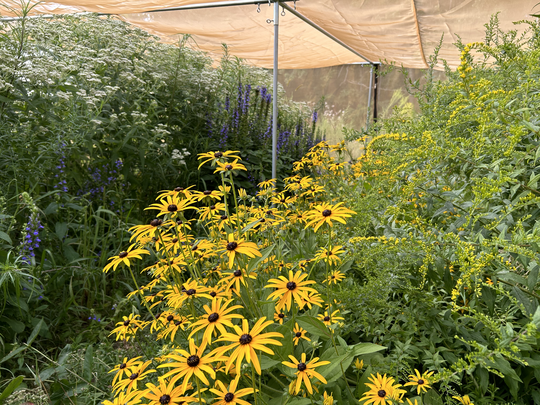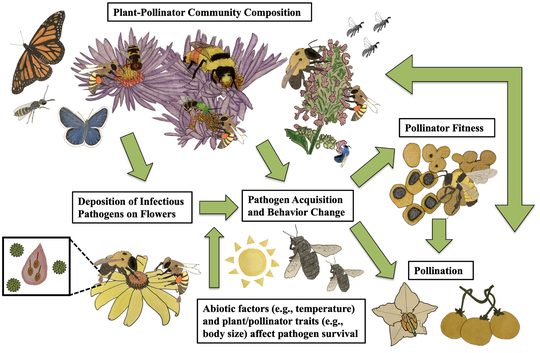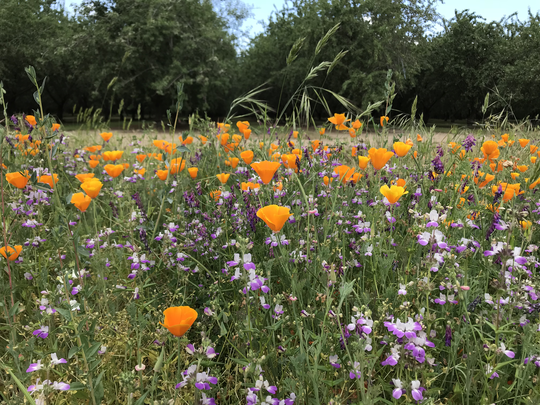Ongoing research
Descriptions of recent and ongoing research
*
Impacts of honey bee competition on native bees
Exploitative competition between honey bees and native bees could have negative consequences for native bee populations, but we know surprisingly little about when and where negative effects are likely to occur. Ongoing projects include manipulative cage experiments and field surveys designed to assess when, where, and how honey bee competition impacts native bee fitness.
Plant-pollinator-pathogen interactions
Plants are essential sources of pollinator nutrition, but petals, nectar, leaves, and other plant tissues can also be sites for the transmission of parasites, viruses, and other pathogens. Current research projects include assessing the temporal dynamics of Deformed Wing Virus transmission in plant-pollinator interaction networks and using innoculation assays and pathogen screens to understand which species can be infected by Crithidia bombi.
Optimizing wildflower plantings to simultaneously support wild and managed bees
Wildflower habitats planted along field borders are a widely promoted strategy for supporting bees in agricultural landscapes. However, honey bees, which are often stocked at high densities in crop lands, can compete with wild bees for pollen and nectar, potentially limiting the successfulness of wildflower plantings at supporting diverse bee communities. My most recent research on this subject uses data on the nutritional quality of pollen from different plant species and pollen collection by bees to assess whether increasing protein availability in wildflower plantings can mitigate negative impacts of honey bee competition.


